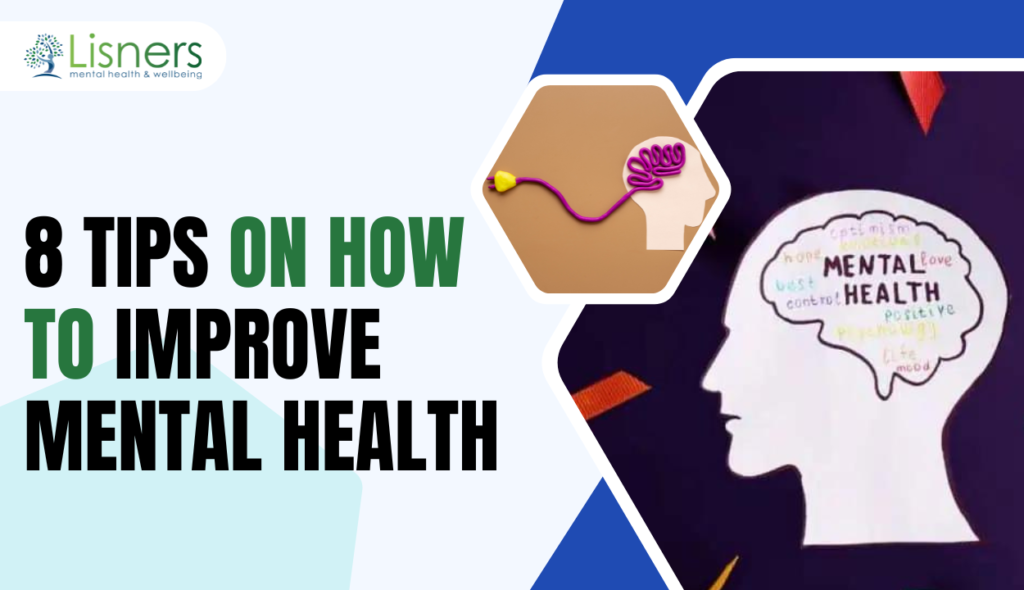Where did the word come from?
Everyone nowadays is familiar with the term narcissism but its historical roots are less well known. In the Greek story of Narcissus, a lovely young man, renowned for his stunning looks, who discovered he couldn’t resist gazing at his reflection in a body of water one day. Until he eventually wilted and died, he persisted in being preoccupied with his own image. Thus, his name endures as a reference for extreme self-regard. This is where the word ‘narcissism’ originates. In simple terms, the narcissist meaning refers to an individual with an inflated sense of self-importance and a constant need for admiration. People with narcissistic tendencies overestimate their own importance. For example, many narcissists overestimate their self-confidence or sense of accomplishment. Others are totally preoccupied with how they look. Some people make efforts to increase their influence or power. The majority of narcissists believe that they are superior to others and are elite or exceptional. They consider themselves to be extremely important, regardless of their actual social standing, and they want others to feel the same way about them. They live on other people’s adulation and admiration. However, criticism from others can quickly demolish their haughtiness. When this happens, it frequently results in anger, rejection, or a barrage of insults. Narcissists are often considered as emotional vampires who desperately need to drain others to get admiration and attention, regardless of how bad their behaviour is.
To revise What is narcissist behavior? Narcissistic behavior is characterized by a sense of entitlement, a lack of empathy, and a constant need for admiration and attention.
Are we all Narcissist?
Many people have subtle narcissistic traits in their personalities. It’s only natural to feel proud of yourself when you do something significant or to like yourself when you look good. Occasionally, those sentiments of pride may cause us to become a little more self-absorbed than usual. But having those feelings occasionally doesn’t make you a narcissist. True narcissists are defined by their narcissistic qualities, which rule their personality and way of life. Every element of their lives, including their work, friendships, and close connections, are impacted by the condition. Narcissistic Personality Disorder is a complicated disorder, just like all other personality disorders. This has become a contentious issue, owing to widespread misunderstanding. It’s also been stigmatized as a personal choice, which it isn’t. Here an individual have an excessive sense of self importance. Individuals with this mental condition demand excessive amounts of attention and want to be admired. It’s possible for those who have this disorder to be incapable of comprehending or caring about the sentiments of others. However, beneath their outward display of excessive confidence, they actually lack confidence in their own abilities and are severely hurt by the least criticism. A weak, rigid, and irrational concept of self lies at the heart of Narcissistic Personalities. People with Narcissistic Personality Disorders need to think of themselves as extraordinary in order to sustain their fragile self-image. Many of the recurring patterns of behaviour they exhibit have this as their primary source. Again remember what is a narcissist? A narcissist is someone who has an excessive sense of self-importance and a lack of empathy for others.
How Do People Develop Narcissistic Personality Disorders?
People with Narcissistic Personality Disorder do not have a single identified cause. In addition to early life events, it is also thought that genetics may be involved. Children who being over-valued, over praised, suffer from abuse, neglect, or trauma may be particularly vulnerable. A risk factor could also be having a narcissistic or highly critical parent. Whatever the reason, these kids grow up with a weak sense of self and a high need for praise from others. Additionally, a lot of narcissists have very poor self-esteem. They overstate their abilities or accomplishments as a result of these attributes. Additionally, they are continually looking for affirmation from other people. Comprehending narcissists in your life requires understanding this crucial aspect. Although they exhibit haughty and conceited conduct, their sentiments of inferiority are deeply ingrained. Narcissistic behavior is often characterized by grandiosity, a lack of empathy, and a tendency to manipulate and exploit others for personal gain.
How a Narcissist Brainwash you?
-
- Cutting you off from your network of supporters.
-
- Tricking you into perceiving things a certain way.
-
- Using gas-lighting to make you question your own judgement.
-
- Destroy your self esteem.
-
- Dose you with occasional positive words or experiences.
-
- Controlling you.
-
- Degrading and demeaning you, then occasionally doing something positive in order to create a trauma bond.
-
- Make you walk on egg shells out of fear of disapproval.
-
- You are now brainwashed and under the control of a narcissist.
- You are now brainwashed and under the control of a narcissist.
7 ways to deal with Narcissists
1.Find out what kind of Narcissist you’re dealing with.
There are two main subtypes of narcissists: Grandiose and vulnerable. The grandiose narcissist is adaptable, attention-seeking, and very self-assured. The greatest strategy for handling grandiose narcissists is to bring them on early and give them a vital role. On the other side, vulnerable narcissists exhibit low self-esteem and are passive aggressive. While vulnerable narcissists are more introverted, grandiose narcissists are outgoing. Provide reassurance to vulnerable narcissists to keep them on task and their emotions in check.
2.Instead of reacting, respond.
It is alluring to respond to the narcissist’s manipulative techniques with amazement, disbelief, wrath, or even hurt, but these emotions just provide the narcissist with much-needed fuel.
Focus on the current problem and do not allow for projection when replying to narcissists. Refocusing on the problem eliminates the narcissist’s capacity to dominate the conversation or alter the conversation. While addressing a narcissist, be deliberate and aware of your language. You should also become familiar with terms that can assist disarm narcissists when they attempt to engage.
3.When at all possible, avoid direct confrontation:
Calling narcissists out is rarely useful and frequently causes them to spin out of control since they are so hypersensitive to criticism. Even worse, you might provoke their narcissistic anger. Therefore, if you do have to provide any negative criticism, try to frame it as much as you can as a complement and only offer brief amounts of criticism.
4.Keep the discussion brief.
Over-talking and dictating the conversation are two skills that narcissists excel at. Redirect the conversation as much as you can, and try to keep it brief and focused whenever you can. End the conversation and move on when you realise it is still being one-sided. Therefore, it’s critical to understand that most conflicts involving a narcissist never get resolved.
5.Establish and uphold firm boundaries.
Narcissistic personality disorder patients frequently break boundaries. They don’t have a problem breaking or bending the rules because they are exempt from them. They value their own limits very highly, though. Make sure you establish boundaries with these people and tenaciously uphold them. Don’t hesitate to be clear about what you will and won’t accept. Your boundaries are open to being violated and pushed whenever there is a crack in your foundation. Restate your boundaries, speak up for yourself, acknowledge their undesirable actions, and push back against their transgressions.
6.Know when you need assistance.
It might be challenging to determine if you are a victim of narcissistic abuse because it can be subtle. It is possible to enter into a cycle of narcissistic abuse and have a sense of helplessness. The indications that you may want professional assistance differ depending on the type of relationship you are in, but if you are having self-doubt or questioning your value, you may require counselling from a therapist skilled in recognizing and assisting those who have experienced narcissistic abuse.
7.Understand when to leave.
Narcissists are masters of deception and adept manipulators. When trying to end a relationship, narcissistic relationship patterns may employ techniques like gas-lighting, belittling, love bombing, and projection to try to keep it going.
It might be time to end the connection if you feel disoriented, perplexed, or unable to articulate what is taking place. Being in a relationship that is not fulfilling your needs is not worth losing sight of who you are or your self-worth. Knowing when to leave can help you prevent the genuine and long-lasting effects that narcissistic abuse syndrome can have on a person. Narcissists are addicts. They are addicted to being significant. They are addicted to attention and constantly being validated and acknowledged. They live for narcissistic supply that is their drug. A narcissist fabricates elaborate tales that are wholly false. One day the mask will come off, revealing the reality, and they’ll try to convince you otherwise by rejecting everything you’ve learnt (gas-lighting). They might even hold you accountable for what you are accusing them of doing (projection). You are now in trouble because of rumors that you shouldn’t have heard. They will go to great lengths to shield their life from lies, and manipulating you is a twisted game they play. They will spread false information about how unstable you are in order to turn your loved ones against you (the flying monkeys). They pull you back in as you move on (hovering). Don’t let this deceive you; it’s not real.
Conclusion
In conclusion, remember What is the meaning of narcissist? The meaning of narcissist is someone who has an excessive sense of self-importance, a lack of empathy, and a constant need for admiration. Understanding narcissism is crucial in recognizing and dealing with the manipulative and harmful behaviors that often accompany this personality disorder. By being aware of the various forms of narcissism and the ways in which it manifests, we can protect ourselves from falling prey to the deceitful tactics of narcissists. It’s important to remember that while it may be challenging to deal with individuals with narcissistic tendencies, seeking professional help and support can aid in navigating these difficult situations. With greater awareness and education, we can break the cycle of narcissistic abuse and foster healthier relationships in our personal and professional lives.
The Author is PhD, Psychology (Gold Medalist), Columnist and a Practicing Mental Health Psychologist at Lisners, India’s best Mental Health and Wellbeing App and can be reached at Dr****@li*****.com









16 Responses
Dr Ruhi is one of the best clinical psychologists of Kashmir valley; besides, being the best known
young writers, writes weeky columns for many local and national newspapers. I have been following her write-ups for along period of time. Allah bless her. A true helping hand support who takes welfare of society and people above all .
Means a lot to me…Thankyou so much
Maa Sha Allah, Nicely summed up and Easy language used make understand the readers.
The author @Dr. Ruhi Psychology is determined to these writings .
I pray for More strength to her pen ✍️.
Thank you for your motivating words DR Gulzar Ahmad Dar. We are working hard to bring more meaningful blogs that can help the masses.
Dr Ruhi is one of the best clinical psychologists of jammu and Kashmir ; besides, being the best known
young writers, writes weeky columns for many local and national newspapers. I have been following her write-ups for along period of time. A true helping hand support who takes welfare of society and people above all and she is energetic and support nature… May Allah bless her
.
Thank you for taking out time to read. Looking forward to bring more such meaningful writeups.
It is awesome and true ingredient to current juncture. It’s information is collective and liable for wrothreading.I usually read your write ups . I truly salute your pen and though.
Thanks for the kind and appreciating words Mr. Firdoos Ahmad Wani. You give us courage to do better for the society.
The author’s writings depict her intellectual acumen and expertise. I wish more power to her pen.
Thank you for the kind wishes. We are learning each day to become a better version of ourselves. Thanks again Dr. Showkat.
I must say @Dr Ruhi, a positive perosnality can only write these things that makes readers easily understand her write- ups.. i wish more power to her pen
Thanks Emo, We wish to add more value to our readers. And we feel only a positive personality can appreciate another positive personality, so credit goes to you too.
A beautiful write up, easy to understand @Dr Rohi❤️
Thank you Mohsin.we are happy to hear that you found it beautiful.
Beautifully written@ Dr Rohi
Informative writeup